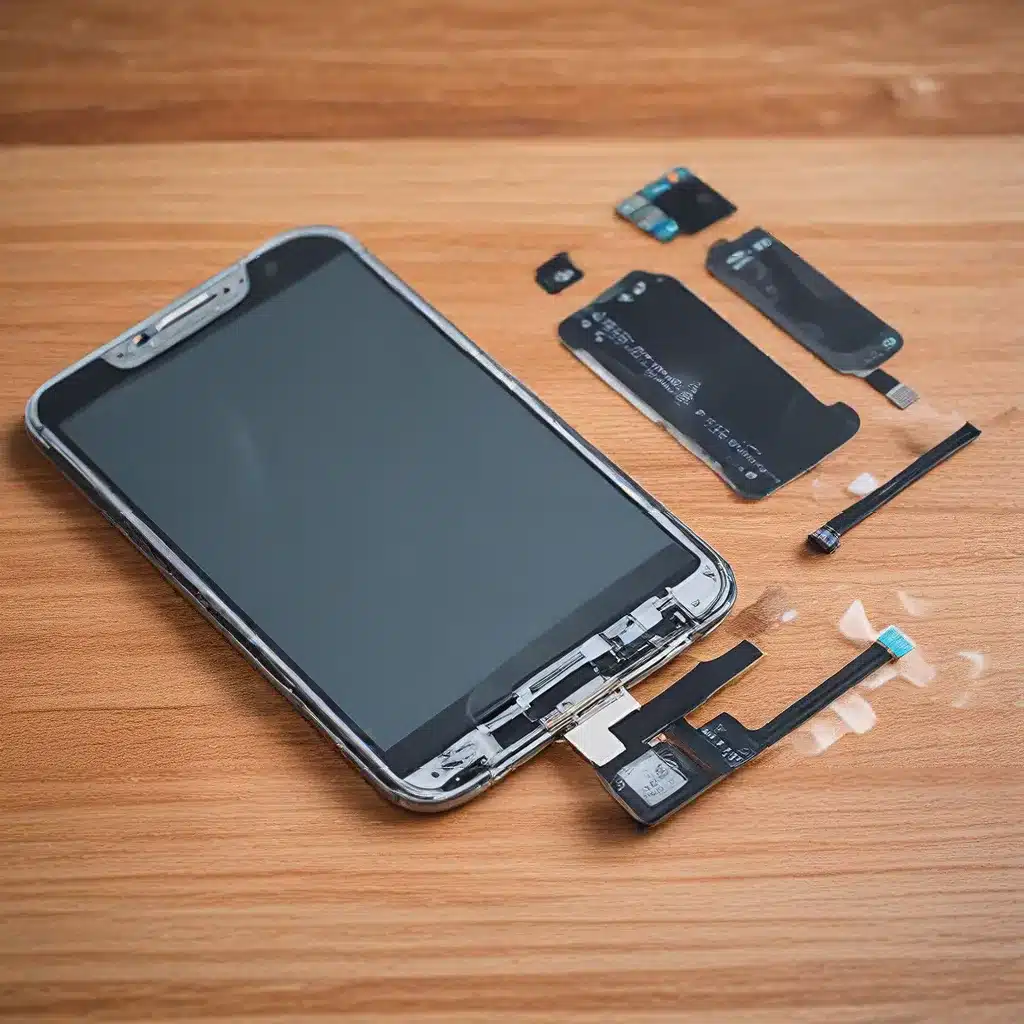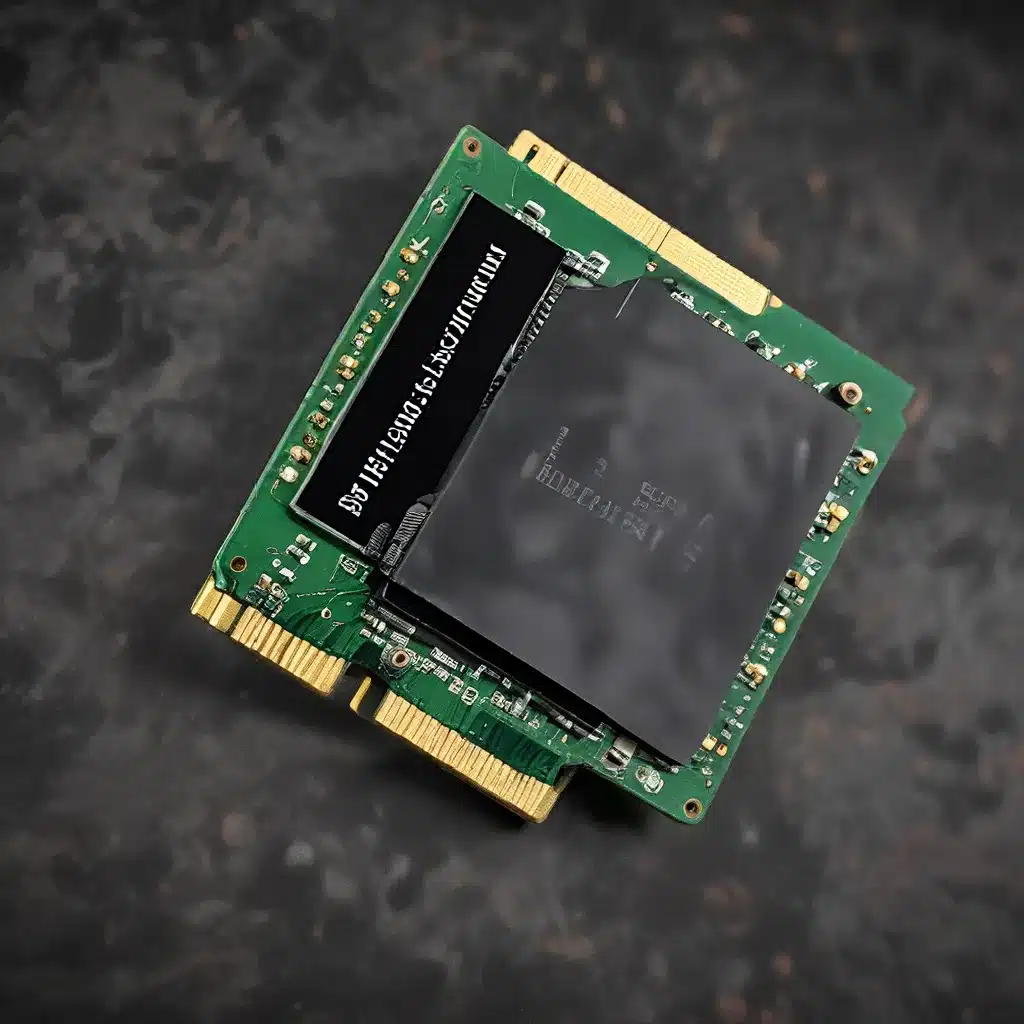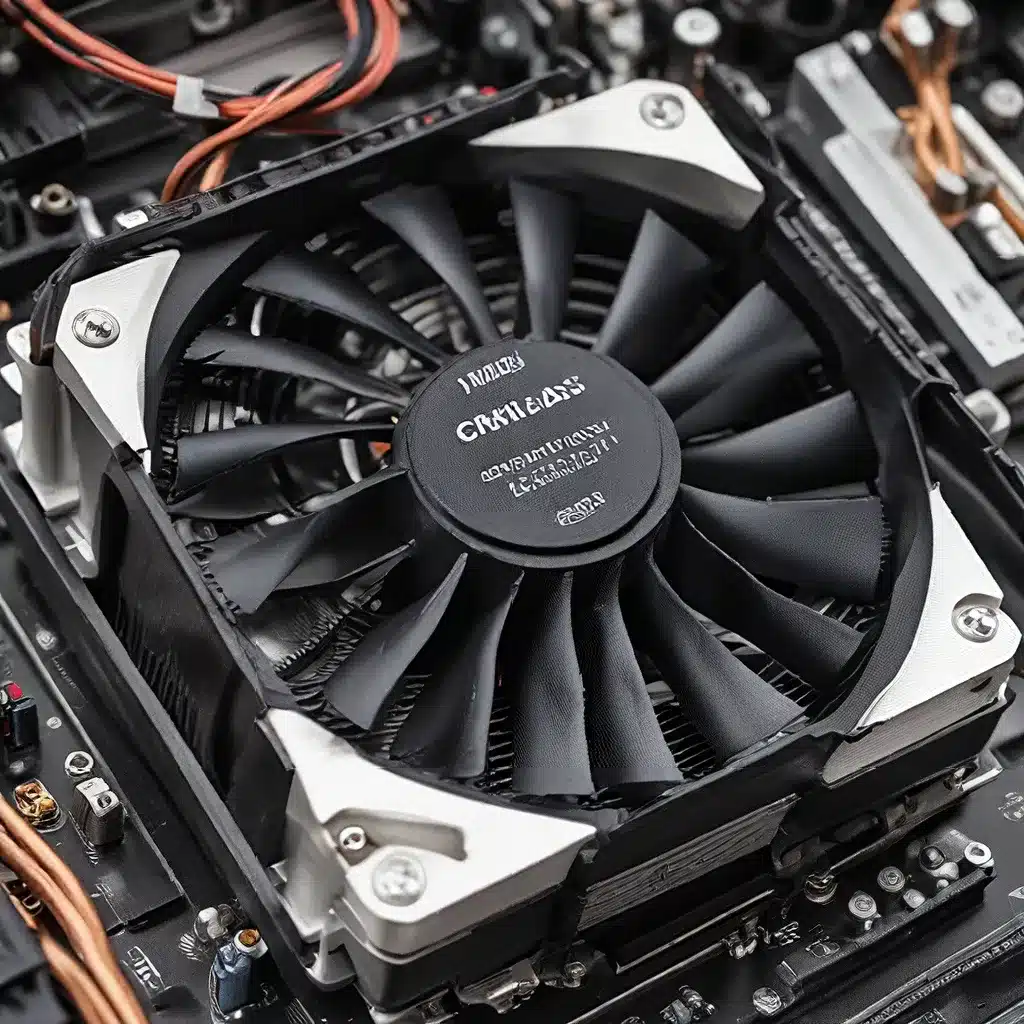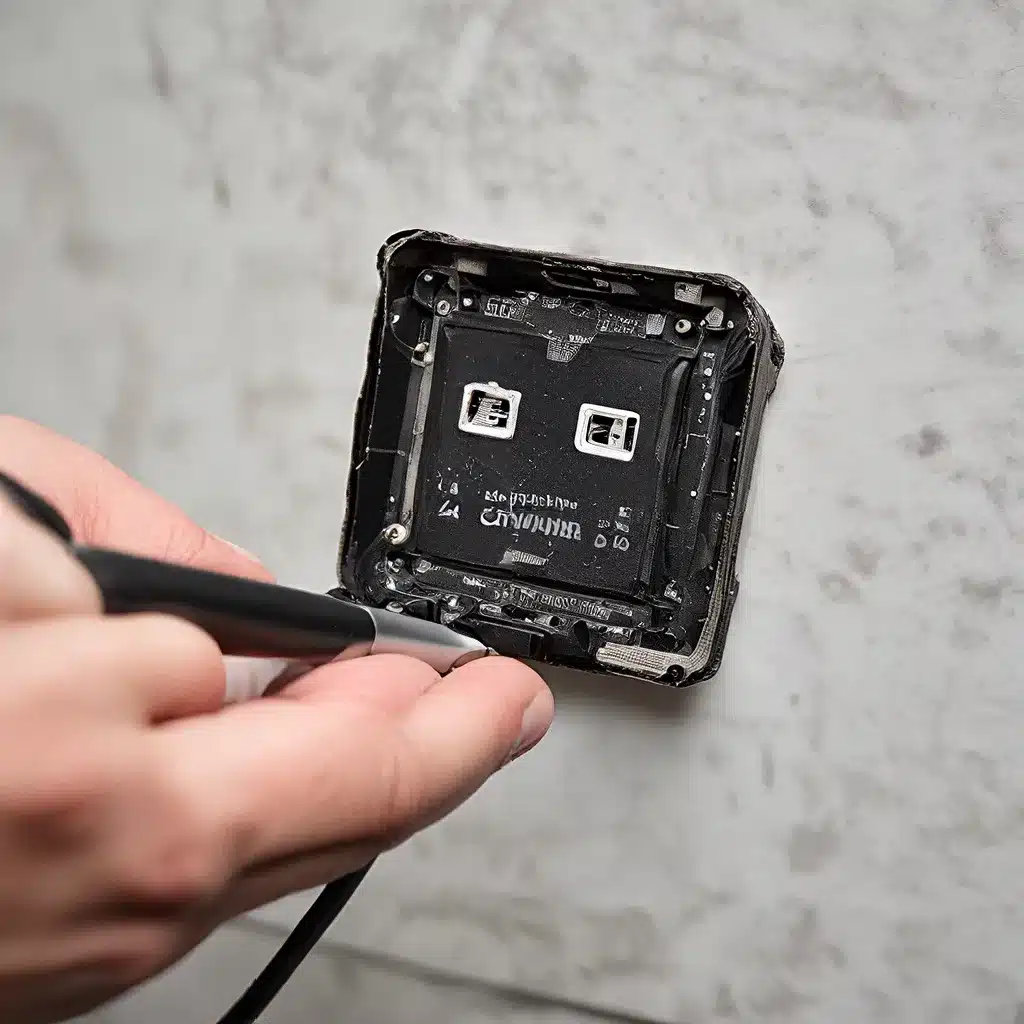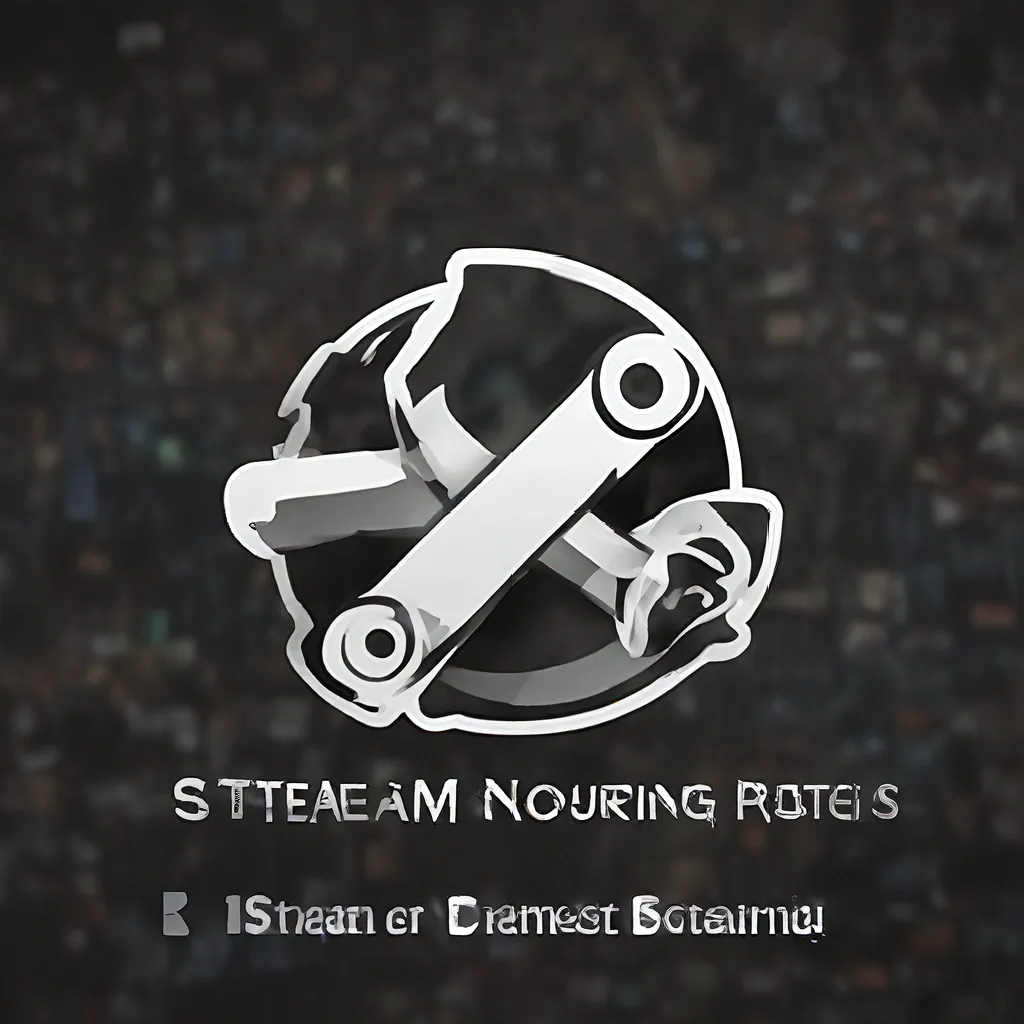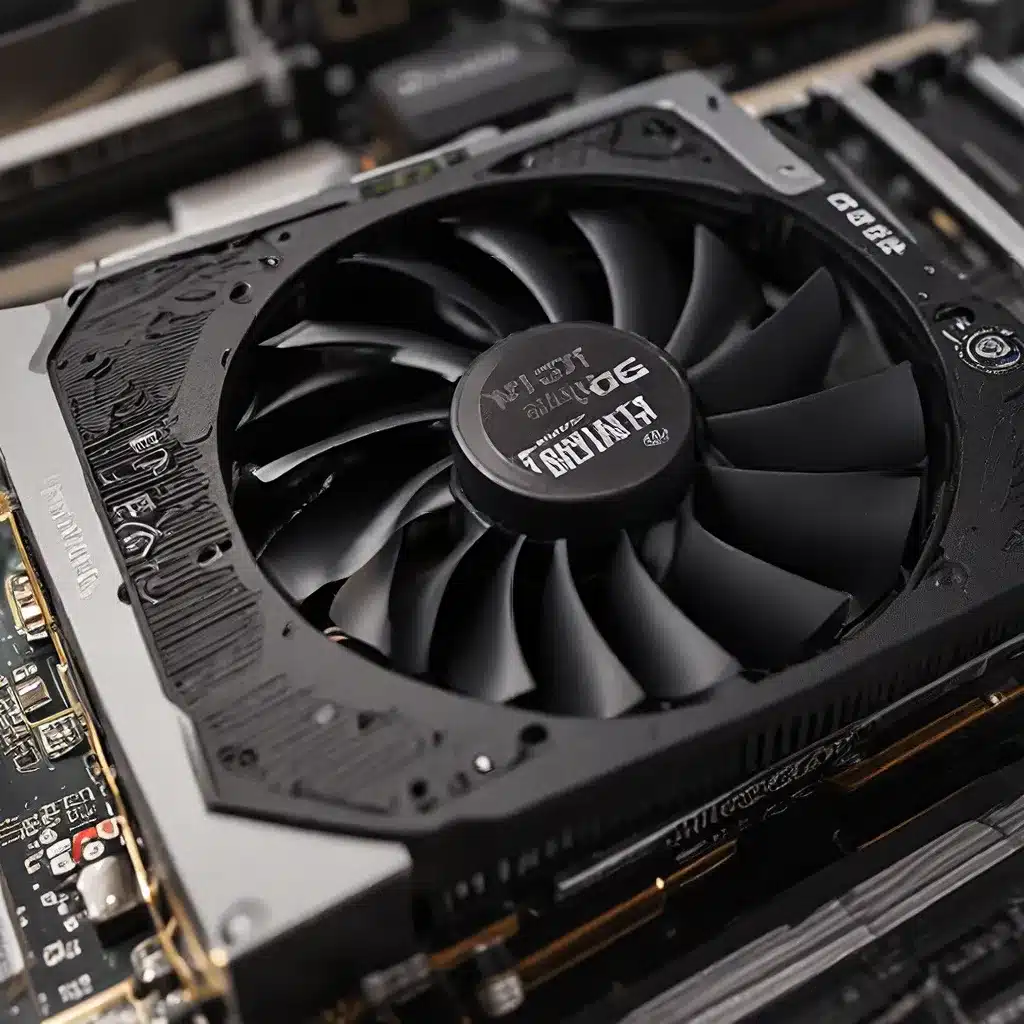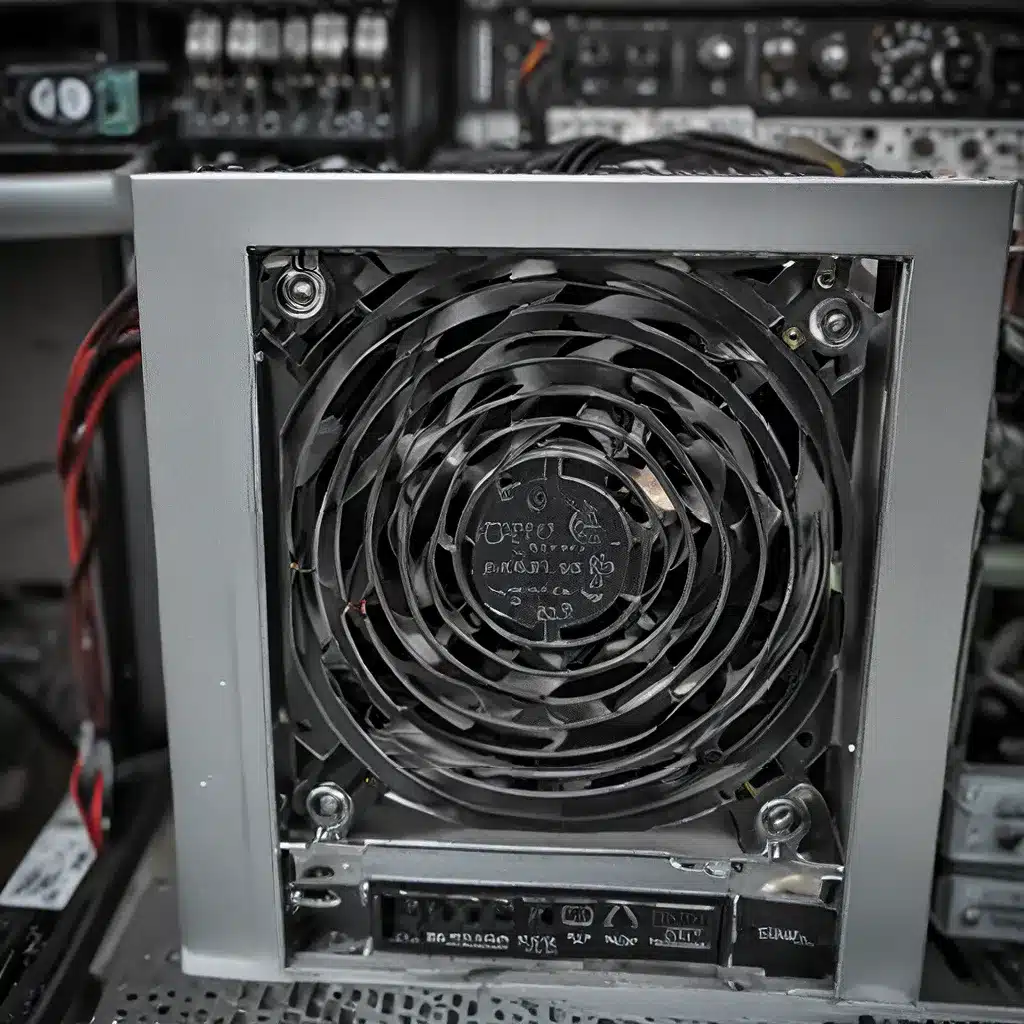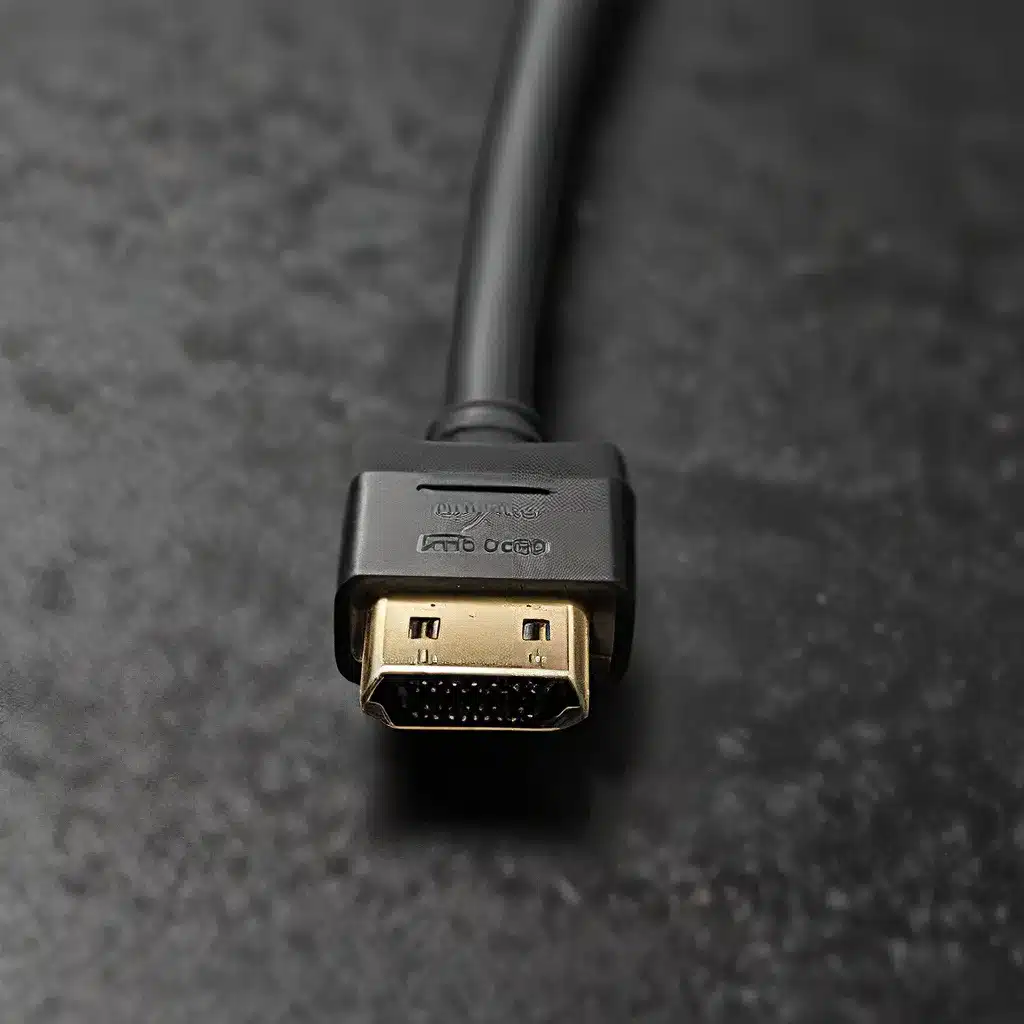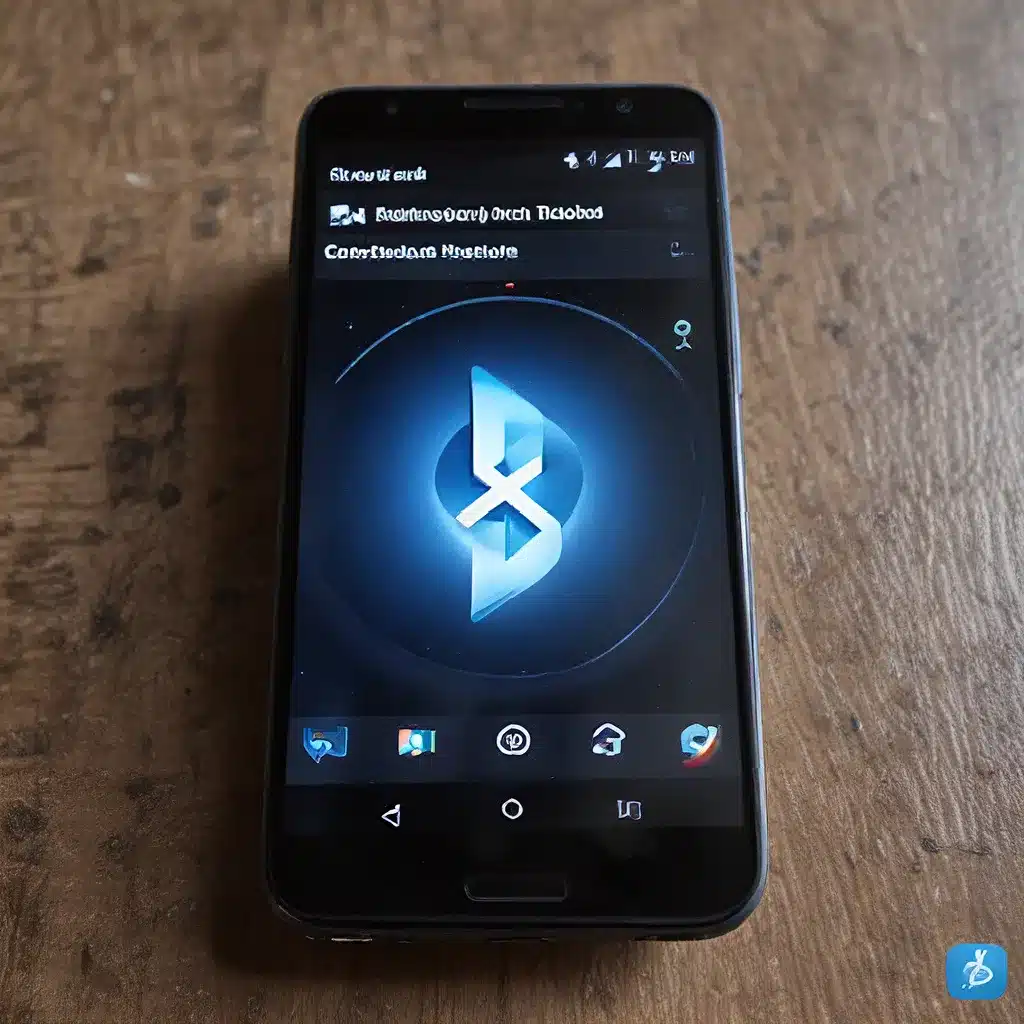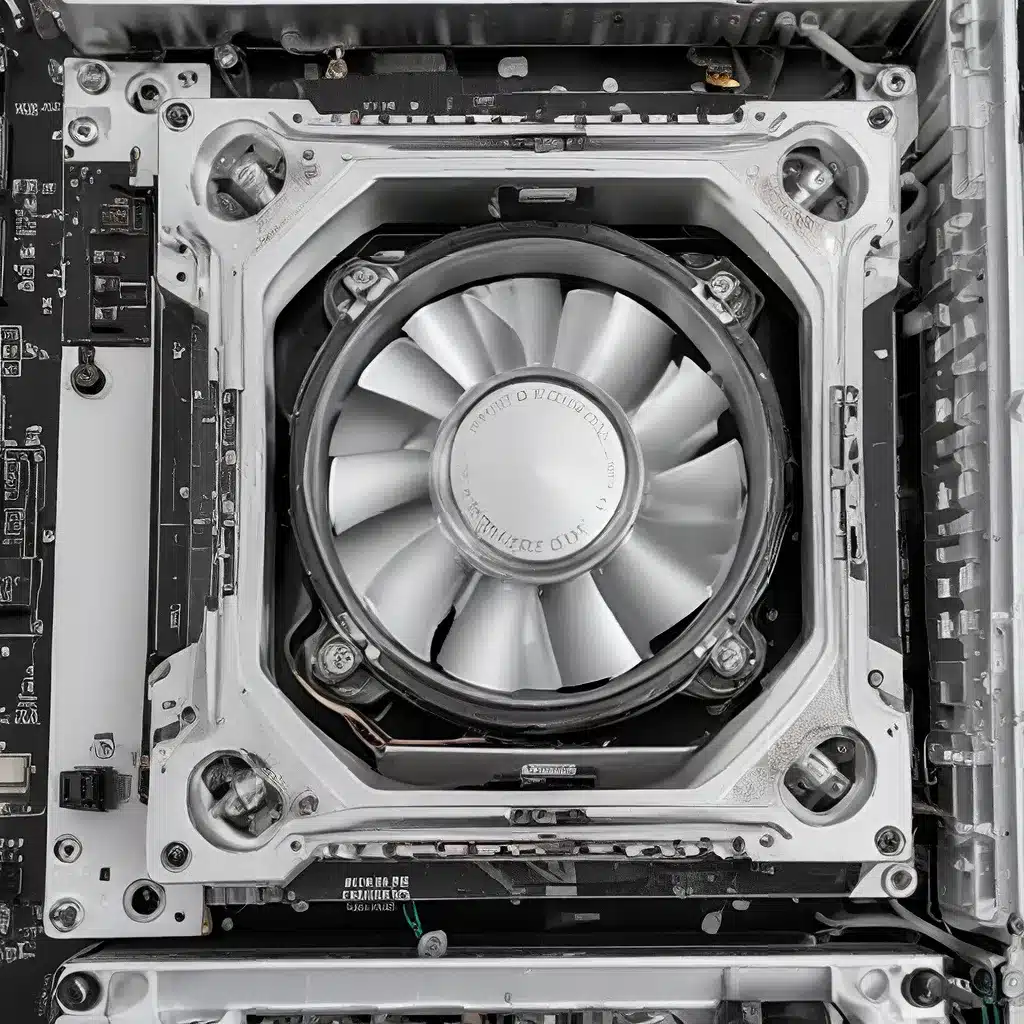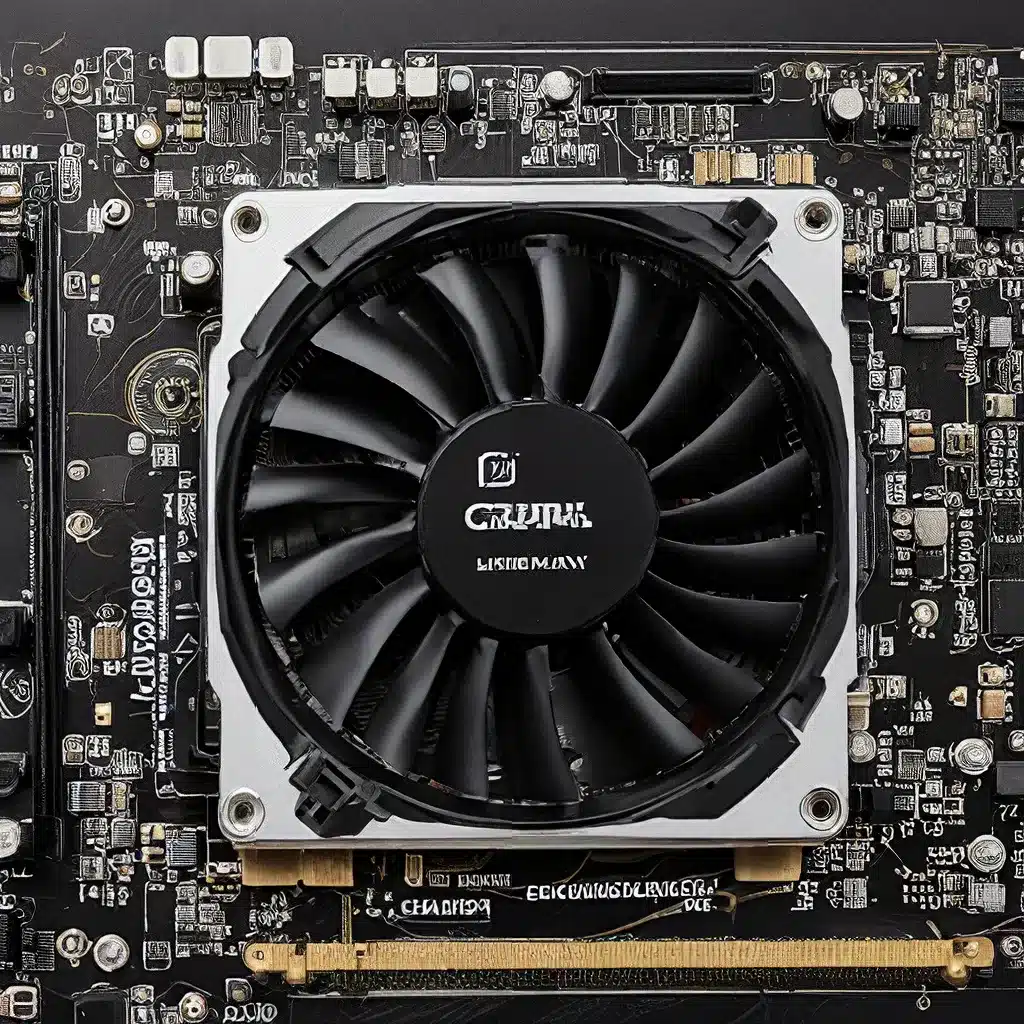The Ryzen 5000 Puzzle: Unlocking Your System’s Full Potential
It’s been over a month since the Ryzen 5000 series CPUs burst onto the scene, and let me tell you – the excitement hasn’t died down one bit. These chips have been flying off the shelves faster than a tech support specialist can say “have you tried turning it off and on again?”
But you know what they say – with great power comes great responsibility. And when it comes to pairing your shiny new Ryzen 5000 processor with the right motherboard, that responsibility can feel a lot like solving a jigsaw puzzle… blindfolded.
Fear not, my friends, for I’m here to guide you through the maze of B550 motherboards and help you find the perfect match for your Ryzen 5000 system. We’re going to dive deep into the nitty-gritty of memory ranks, latencies, and Infinity Fabric ratios – but don’t worry, I’ll make sure to keep things as simple and relatable as possible. After all, I’m not here to baffle you with tech jargon; I’m here to empower you to make the best decision for your build.
So, buckle up and get ready to unlock the full potential of your Ryzen 5000 system. It’s time to choose the right B550 motherboard and take your gaming, content creation, and productivity to new heights!
Understanding the Memory Puzzle: Ranks, Latencies, and Infinity Fabric
Let’s start with the heart of your system – the memory. Now, I know what you’re thinking: “Memory? Isn’t that just a bunch of sticks that go in the slots?” Well, my friend, there’s a lot more to it than that.
One of the key factors to consider is the concept of memory ranks. A rank is essentially a group of memory chips that can be accessed simultaneously. And let me tell you, this little detail can have a big impact on your system’s performance.
You see, the Ryzen 5000 series CPUs have some seriously beefy memory controllers, and they thrive on dual-rank memory configurations. When you’ve got two ranks per memory channel, your CPU can basically juggle two operations at once – one rank being accessed while the other is being refreshed. This little trick, known as “rank interleaving,” can lead to some pretty impressive performance gains.
But it’s not just about the ranks; latency also plays a crucial role. Back in the Ryzen 3000 days, we used to obsess over those tight CAS latency (CL) timings, thinking they were the key to unlocking maximum performance. Well, let me tell you, the Ryzen 5000 CPUs have taken a page out of the Intel playbook and said, “Hold my beer.”
Thanks to the new unified cache design, these Zen 3 processors have seen a significant reduction in memory latency, making them a lot less sensitive to those ultra-tight timings. Don’t get me wrong, lower latencies can still provide a small boost, but the days of needing CL14 memory to get the best results are long gone.
Now, you might be wondering, “Okay, so dual-rank and low latencies are good, but what about that Infinity Fabric thingy?” Well, my friend, that’s where the real magic happens.
The Infinity Fabric is the highway that connects all the components in your Ryzen system, and it’s closely tied to your memory speed. In fact, on Ryzen 5000, the Infinity Fabric, memory controller, and memory clock are all locked in a 1:1:1 ratio – at least up to DDR4-3600. Push past that, and you start to run into some stability issues.
You see, once you go beyond DDR4-3600, the Infinity Fabric clock gets stuck at 1800MHz, while the memory controller tries to keep up at half the memory speed. This little mismatch can lead to a significant performance penalty, so it’s crucial to keep your memory and Infinity Fabric in sync.
Phew, that was a lot of technical jargon, but I promise it’s all going to come together in a moment. Let’s dive into the practical side of choosing the right B550 motherboard for your Ryzen 5000 system.
Navigating the B550 Motherboard Landscape
Alright, now that we’ve got the memory fundamentals down, let’s talk about the heart of your system – the motherboard. When it comes to pairing a Ryzen 5000 CPU with the perfect B550 board, there are a few key things you need to consider.
First and foremost, you’re going to want to make sure your motherboard can handle the memory speeds and Infinity Fabric ratios your CPU craves. As we discussed, the Ryzen 5000 series loves that sweet 1:1:1 ratio, so you’ll want to look for a B550 board that can reliably hit those higher DDR4-3600 and DDR4-3733 speeds.
Now, I know what you’re thinking: “But what about those insane DDR4-4000 and DDR4-4200 numbers we saw in the hardware reviews?” Well, let me be the bearer of bad news – those kinds of memory speeds are still pretty much out of reach for the average consumer, at least with a standard B550 board.
You see, the motherboard manufacturers have been working closely with AMD to fine-tune the higher-end X570 and TRX40 chipsets for those extreme memory configurations, but the lower-cost B550 chipset is still playing catch-up. Most B550 boards struggle to maintain stability beyond DDR4-3733, and even getting to that sweet spot can be a bit of a challenge.
But fear not, my friends, because there are still plenty of B550 boards out there that can deliver an exceptional Ryzen 5000 experience. You just need to know where to look.
Unlocking the Sweet Spot: B550 Boards for Ryzen 5000
When it comes to choosing the right B550 motherboard for your Ryzen 5000 system, I always recommend starting with the tried-and-true options. Sure, the flashy, high-end models might catch your eye, but sometimes the best solution is the one that just works – no fuss, no muss.
One of my personal favorites in the B550 space is the ASUS ROG Strix B550-F Gaming (WiFi). This board checks all the boxes for a solid Ryzen 5000 build, with support for DDR4-3600 memory, a robust power delivery system, and plenty of connectivity options. Plus, the UEFI BIOS is about as user-friendly as they come, making it a breeze for even the most novice builders to get their system up and running.
Another great option to consider is the MSI MAG B550 Tomahawk. This board has earned a reputation for being a real workhorse, with excellent memory compatibility, a well-designed VRM setup, and a host of features that make it a great value proposition. And let’s not forget the sleek, matte-black aesthetic that’ll have your build looking like a million bucks.
Of course, if you’re the kind of person who likes to push the limits, you might want to take a look at the GIGABYTE B550 AORUS Master. This board is built for the enthusiast crowd, with support for higher memory speeds, advanced overclocking options, and a laundry list of premium features. Just keep in mind that you might need to put in a bit more elbow grease to get the most out of it.
Ultimately, the best B550 motherboard for your Ryzen 5000 system is going to come down to your specific needs and budget. But no matter which route you choose, I can assure you that you’re in for a treat. These B550 boards are designed to extract every last drop of performance from your Zen 3 CPU, so you can focus on what really matters – gaming, creating, or just plain ol’ productivity.
Pushing the Limits: Extreme Memory Configurations for Ryzen 5000
Now, I know what you’re thinking: “That’s all well and good, but what about those insane memory speeds we saw in the hardware reviews? Surely there must be a way to unlock that level of performance!” And you know what? You’re absolutely right.
While the average B550 board might struggle to hit those lofty DDR4-4000 and DDR4-4200 heights, there are a few select motherboards out there that can handle the challenge. And let me tell you, when you pair one of those boards with the right memory kit, the results are nothing short of mind-blowing.
Take the ASUS ROG Crosshair VIII Dark Hero, for example. This X570 behemoth is practically built for extreme memory overclocking, and with the right tuning, it can push the Infinity Fabric up to 2100MHz – all while keeping your Ryzen 5000 CPU happy and stable.
But wait, there’s more! If you really want to go all-out, you could try your hand at the GIGABYTE X570 AORUS Master. This board is like the superhero of the X570 lineup, with advanced power delivery, top-notch memory support, and enough tweaking options to make even the most hardcore overclocker drool.
Now, I know what you’re thinking: “But won’t all that extreme memory speed come at a cost?” And you’d be absolutely right. You see, the moment you start pushing past that magical 1:1:1 Infinity Fabric ratio, you start to run into some serious performance penalties. It’s like trying to drive a Ferrari on a dirt road – the power is there, but the traction just isn’t.
So, while it’s undoubtedly cool to see your system hit those record-breaking memory speeds, the truth is that for the vast majority of users, those kinds of extreme configurations aren’t going to provide a meaningful performance boost. In fact, they might even do more harm than good, with stability issues and other gremlins creeping into your system.
But hey, if you’re the kind of person who lives for pushing the limits, then by all means, go for it! Just make sure you’ve got a solid understanding of what you’re getting into, and be prepared to put in some serious time and effort to get everything dialed in just right.
The Final Piece of the Puzzle: Putting It All Together
Alright, now that we’ve covered the memory and motherboard fundamentals, it’s time to tie it all together and help you choose the perfect B550 board for your Ryzen 5000 system.
Here’s the bottom line: if you’re looking for a reliable, plug-and-play experience that’ll let you get the most out of your new CPU, I’d recommend going with a board like the ASUS ROG Strix B550-F Gaming (WiFi) or the MSI MAG B550 Tomahawk. These boards strike a fantastic balance between performance, features, and ease of use, making them a great choice for the vast majority of Ryzen 5000 builders.
But if you’re the kind of person who loves to tinker and push the limits, then you might want to consider stepping up to a more enthusiast-oriented board like the GIGABYTE B550 AORUS Master or the ASUS ROG Crosshair VIII Dark Hero. Just keep in mind that you’ll need to put in a bit more work to get the most out of these boards, and you might not see a huge real-world performance difference compared to the more affordable options.
Ultimately, the choice is yours, my friend. But no matter which B550 motherboard you decide to go with, I can assure you that you’re going to be in for one heck of a ride. These Ryzen 5000 systems are absolute powerhouses, and with the right motherboard to back them up, the sky’s the limit.
So, what are you waiting for? It’s time to dive in, do your research, and find the perfect B550 board to unleash the full potential of your Ryzen 5000 CPU. Trust me, your system (and your wallet) will thank you.


